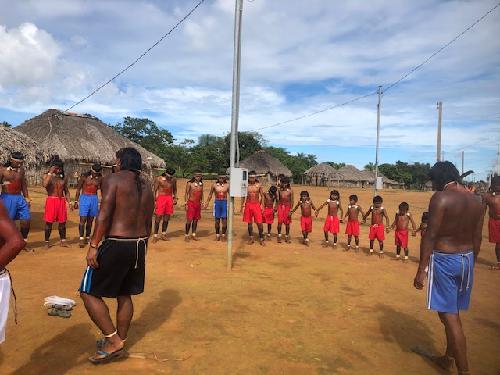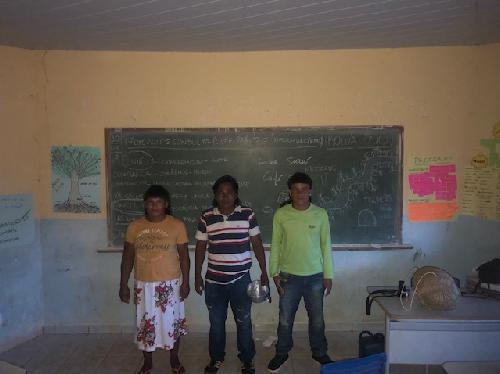Aline Angotti Carrara
The role of indigenous peoples in conservation outlines two strands of action. The first is to provide indigenous with adequate mechanisms for the territorial governance. The second, from an environmental to indigenous rights perspective, should form the basic premise of the autonomy of indigenous nations or minimally a full legal recognition of their collective right to their ancestral lands and would secure their right of self-determination by granting them full access to natural resources. In the Brazilian Savannah this is imperative due to its enormous natural wealth, delicate geopolitical insertion and the constant socio- environmental threats sheltered by developmental projects. This project aims to fulfill this gap by guiding the development of the Free, Prior and Informed Consent (FPIC) of the Xavante of São Marcos Indigenous Reserve (SMIR) in Brazil as a safeguard mechanism to ensure both territorial and environmental protection.

My overall goal is, in conjunction with Xavante communities, to develop an FPIC. This proposal aims to promote discussions of such a tool and generate a draft. For the Xavante an official FPIC is a necessary safeguard for their territory, natural resources and culture, warranted by a history of exploitative encounters with powerful outsiders. Located in the epicenter of development, Xavante Indigenous Reserves are an easy target for the increasing expansion of development projects. The tribe has been defending their lands since the mid-19th century in northeastern Mato Grosso State, establishing contact with non-indigenous only 60 years ago, and becoming a national symbol of indigenous resistance.

In Brazil many indigenous tribes are being evicted, displaced and killed. If communities resist, they become neighbors to monoculture farms, mining operations or large- scale infrastructure enterprises and suffer consequences of poisonous industrial effluents and deforestation. And the IR focused policy, to counter this, is often made keeping in mind how people used to live and how they used to manipulate nature to survive. But, it often fails to incorporate the transitioning landscape of stakeholders currently contesting the same territory. This traps indigenous populations within a static identity, much like colonial conservation, boundaries are drawn around what a forest is and what a people are.
Thus the recognition that indigenous groups that manage their lands in harmony with nature have successfully supported the legalization of IRs in the context of ecosystem conservation. Despite such policies, IRs are also viewed as economically unproductive catalyzing a growing demand for commodities production within them. The complicated communal response to the needs of both development and conservation are usually excluded from the narrative. Given this history, an exploration/support of safeguards to such dual exploitative processes, becomes of critical importance. The FPIC has the potential to become such a tool.